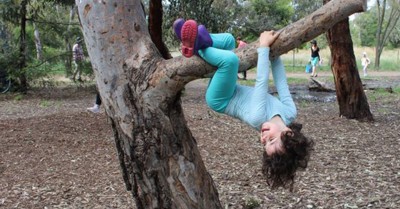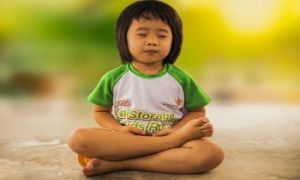Early education care services are increasingly making bush kinders part of their educational programs. These involve excursions to sites in the midst of nature and away from structured service settings. The following article provides information about the Benefits of Bush Kinders, Supervision, Planning and more.
Benefits Of Bush Kinders
As young children explore the natural environment at bush kinders, they relish the freedom of splashing in the mud or the exhilaration of climbing a tree. Such activities not only foster the physical development of their limbs, and gross and fine motor skills but nurture creativity as well. Without any toys or equipment, children use their own imagination to devise games with whatever is lying around – sticks, pebbles, rocks, logs and leaves. Also, such settings offer ample opportunities for pretend play, thus building their emotional and social skills. What’s more, as children accompany Elders on bush walks, they get to learn about the indigenous history of the area, its creatures and seasonal cycles.
Planning
While choosing a site for bush kinder, several points need to be kept in mind, starting with which learning objectives will be met by the site and in what ways. Other matters to factor in are:
- natural boundaries of the site
- any hazards at the site, like a large water body, and how could such dangers be addressed
- adequate mobile phone coverage and access to emergency vehicles
- distance from the service to the bush kinder site since it would determine transport for children
- access for children with disabilities or mobility issues
- supervision of children
- consultation and communication with parents and families
Bush Kinder Activities
The specific learning activities/opportunities that can be included in the Bush Kinder program are:
- Interacting with fire
- Playing with sticks and loose parts
- Bare feet time
- Experiencing all weather – “There is no bad weather, only bad clothes”
- Providing children with natural outdoor learning spaces
These activities provide a balanced approach to learning that allows children to take calculated risks which helps them overcome their fears and see how far they can push themselves.
Considerations
It takes more than just letting kids play outside for a bush kinder programme to be successful. Teachers must thoughtfully organise the underlying pedagogy and make the necessary logistical arrangements (such as weather updates, an emergency plan, and required supplies). As was previously noted, risk management is also a crucial component because the teaching team will need to comprehend operational and logistical elements while abiding by federal laws (State Government of Victoria, 2020).
Teachers and educators ought to consider their purpose while kids are participating in bush kinder. It involves more than simply actively watching over kids; it also entails taking on the role of a "co-investigator" or "co-player" and helping kids do research and find the answers to their concerns. Additionally, teachers and educators must determine when to step in and direct the learning process and when to step back and let kids explore on their own, directing their own learning through first-hand encounters and experiences.
Supervision
However for children to imbibe the real benefits of bush play, it is important that they are left to play freely. Educators and adult supervisors should avoid hovering around them and asking things like 'Are you alright?' or 'What's your plan to get down?' Similarly, adults should resist the temptation to give advice like ‘Hold on to two places’ or “be careful’. It is important to let children work out for themselves how they can safely climb this tree or cross that stream.
Meeting Regulations
An essential aspect of planning bush kinders is checking whether the program meets requisite regulations and guidelines which apply when children are taken outside the education and care service. These may relate to the delivery and collection of children to and from the site, orientation policy for families, approved a number of places, authorisations for outings, risk assessment, weather conditions and evacuation policies and measures, among others.
Children benefit in many different ways when they freely play and explore in a natural setting.
Further Reading
Benefits Of Outdoor Area - The following article provides suggested learning objectives that support a child's overall development.
How Does Nature Affect A Child's Development - The following shows how nature benefits a child's overall development.
Learning With Nature - Here are a few ways educators can facilitate learning with Nature.
Reference:
Bush Kinders, Department Of Education, Victoria







 As an Educator in Australia, your pay rate falls under the Children’s Services Award 2010. This award states the minimum amount that an employer can
As an Educator in Australia, your pay rate falls under the Children’s Services Award 2010. This award states the minimum amount that an employer can When working as a qualified Early Childhood Teacher (with a university degree) within a service, your rate of pay will come from the Educational Services
When working as a qualified Early Childhood Teacher (with a university degree) within a service, your rate of pay will come from the Educational Services When working as a Diploma Qualified Educator your pay rate is from the Children's Services Award 2010. This Award states your minimum rate of pay
When working as a Diploma Qualified Educator your pay rate is from the Children's Services Award 2010. This Award states your minimum rate of pay When working as a Cert 3 Qualified Educator, your pay rate is from the Children's Services Award 2010. This Award states your minimum rate of
When working as a Cert 3 Qualified Educator, your pay rate is from the Children's Services Award 2010. This Award states your minimum rate of Educational Leaders play a crucial role in their early childhood service by ensuring that the educational program aligns with best practices and supports the holistic
Educational Leaders play a crucial role in their early childhood service by ensuring that the educational program aligns with best practices and supports the holistic In early childhood education and care, ratios are more than a technicality—they are a frontline safeguard. Every child deserves responsive supervision, emotional connection, and developmental
In early childhood education and care, ratios are more than a technicality—they are a frontline safeguard. Every child deserves responsive supervision, emotional connection, and developmental With the new national child safety reforms kicking in on 1 September 2025, early childhood services like yours have a real opportunity to lead the
With the new national child safety reforms kicking in on 1 September 2025, early childhood services like yours have a real opportunity to lead the Here’s a comprehensive Mobile Phone and Smart Watch Policy tailored for early childhood education and care (ECEC) services in Australia, aligned with the latest 2025
Here’s a comprehensive Mobile Phone and Smart Watch Policy tailored for early childhood education and care (ECEC) services in Australia, aligned with the latest 2025 The Sea of Fish Challenge is a national initiative that invites children, educators, families, and communities to create and display fish artworks as a symbol
The Sea of Fish Challenge is a national initiative that invites children, educators, families, and communities to create and display fish artworks as a symbol Across the early childhood education and care sector, educators are sounding the alarm: current staffing ratios are insufficient to deliver safe, meaningful, and developmentally appropriate
Across the early childhood education and care sector, educators are sounding the alarm: current staffing ratios are insufficient to deliver safe, meaningful, and developmentally appropriate


